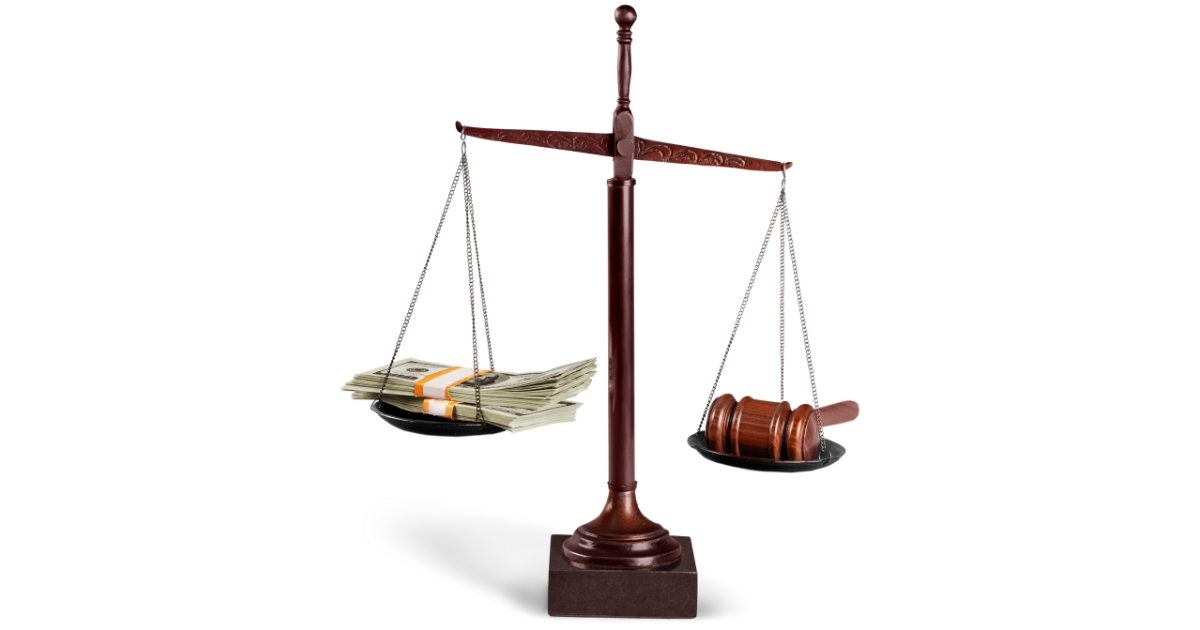Understanding the Difference Between a Settlement and a Verdict in Personal Injury Cases
If you’ve been injured in an accident in Massachusetts, and it wasn’t your fault, you have choices to make. Now, you’re not just dealing with recovery; you’re also facing big decisions about how to seek compensation. Do you settle with the insurance company, or push for a court verdict? Each path comes with its own twists, and knowing the difference between a settlement and a verdict is critical as deciding for one or the other could significantly change the outcome and compensation you receive.
However, getting fair compensation isn’t easy. Insurance companies have experienced lawyers who know every legal trick in the book to reduce or even dismiss claims. For someone recovering from an injury, it can feel like an uphill battle.
That’s why it’s so important to understand your options. A clear picture of what settling versus going to court means can help you choose the best path forward and what step to take next. Let’s break down each option, so you feel confident about the steps ahead and ready to make the decision that’s right for you.
What is a Legal Settlement?
A legal settlement is an agreement you reach with the insurance company, often with the guidance of your personal injury lawyer. Instead of going to trial, your lawyer works to negotiate a fair amount for your losses. Their goal is to secure the best possible outcome for you, all without the need for court proceedings.
Filing a Claim for a Settlement
When you decide to file a claim in Massachusetts, you can do so on your own, or with the help of a personal injury lawyer you hire on a contingency basis, which means they only get paid if you get compensation. Having an experienced personal injury lawyer by your side can make the process more efficient and faster; Above all, a lawyer that has a track record of successfully negotiating with insurance companies improve your chances of fair compensation and help secure maximum settlement amounts. Your lawyer will submit a detailed claim that includes medical costs, lost wages, and other damages from your injury.
The insurance company will then investigate and make an initial offer. Your lawyer can review this offer with you and, if needed, negotiate for a better amount.
When is a Settlement a Good Option?
Settlements can be a good choice when you’re looking for a quicker, less stressful resolution. They allow you to avoid a lengthy trial process, helping you receive compensation sooner.
With a settlement, you also have more control in the negotiation process, rather than leaving the decision to a judge or jury. Settling outside of court can reduce legal costs and give you privacy, keeping the details of your case out of public records.
While settlements offer these benefits, it’s important to weigh both the advantages and potential drawbacks to see if it’s the right choice for you. Let’s take a closer look at the pros and cons of settling your case.
Pros of Settlements
- Quick Resolution: Settlements often provide a faster way to receive compensation, which helps you focus on recovery instead of a lengthy trial.
- Lower Costs: By avoiding trial, you can reduce legal expenses, keeping more of your compensation for actual needs.
- Less Stressful: Trials can be emotionally taxing; settling outside of court lets you avoid the strain of courtroom procedures and testimony.
- Greater Control Over Outcome: You have a say in the negotiation, which can feel empowering since you’re directly involved in deciding the amount. With a lawyer by your side, you can go through the process with confidence.
- Privacy: Settlements remain private, which can be reassuring if you prefer to keep details of your case out of the public eye.
Cons of Settlements
- Potentially Lower Compensation: Insurance companies often aim to settle for lower amounts than what might be awarded in court, which could mean you receive less than what you need.
- No Appeals: Settlements are final and binding, so once you agree, there’s no opportunity to challenge or increase the amount.
- Accountability: In a settlement, the at-fault party may not have to admit wrongdoing, which can feel unsatisfying if you’re looking for acknowledgment of their role in your injury.
While settlements can offer peace and privacy, getting full compensation isn’t always easy. Insurance companies often try to minimize payouts, which can make it hard to secure the amount you need.
An experienced personal injury lawyer can improve your chances of a fair settlement. They understand the tactics insurers use and can push for terms that better meet your needs. With their help, you have a stronger chance to maximize your compensation without the risks and delays of going to trial.
What are the Key Outcomes in a Trial?
In personal injury cases, a verdict and award are important outcomes when you take a case to trial. The verdict determines responsibility, while the award sets the compensation based on that decision.
What is a Verdict?
A verdict is the court’s decision at the end of a trial. With a skilled injury lawyer presenting your case, the judge or jury decides if the other party is responsible for your injury and if you should receive compensation. Trials can be complex, but a verdict often brings a sense of justice since it’s based on a full review of the facts.
What is an Award?
An award is the compensation granted if the verdict is in your favor. Here, your attorney plays a vital role in presenting evidence to make sure that all aspects are considered for a comprehensive award. These evidences include medical bills, lost wages, and other impacts on your life. The court considers these factors and makes decision accordingly. Awards cover both immediate and future costs related to your injury.
While an award may sometimes be more than a settlement, pursuing it means committing to a longer, often more costly, process. A lawyer can help you decide if seeking an award through trial is the best route for your situation.
What is the Difference Between Settlement and Verdict?
As you decide how to seek compensation, understanding the difference between a settlement and a verdict is key. Knowing this distinction helps you make an informed choice, as each option offers unique features for handling your case:
Resolution Process
When you consider the difference between a settlement vs. a judge’s verdict, the processes are quite different. If you’re looking for a quicker resolution, a settlement might be the better choice. It allows you to negotiate directly with the insurance company, which usually means getting paid faster.
However, if you choose a verdict, you will go through a full court process. This takes more time, but it often gives you a clearer and fairer outcome as the court examines all the evidence.
Control and Finality
With a settlement, you have control over the terms and timing. You can decide if the offer feels fair or if you want to negotiate further. Once you agree, the settlement is final, and you can’t go back.
In contrast, a verdict is decided by the judge or jury. This can lead to higher compensation, but it means you have less control over the outcome. The court makes the final decision based on the evidence presented.
Compensation Amount
When you consider the compensation differences in a settlement and a verdict, settlements often cover immediate expenses like medical bills and lost wages. However, they may not fully address long-term costs related to your injury.
On the other hand, a verdict can provide broader compensation. It takes into account the severity of your case, including ongoing expenses and long-term needs, potentially leading to a more comprehensive financial outcome.
Privacy
Another difference between settlement and verdict is the privacy factor. Settlements are private, keeping your case out of public records. This helps maintain confidentiality about the details of your injury.
In contrast, verdicts are part of the public record. This can affect your privacy but also creates an official record of accountability.
Ultimately, the choice between settlement and verdict depends on what you need—control, speed, or potentially higher compensation. A lawyer can help you decide the best option for your situation.
What is the Difference Between Settlement and Award?
When you consider the difference between a settlement and a court award in Massachusetts, several key aspects come into play. These include:
- A settlement is usually quicker. With your lawyer’s guidance, you can negotiate directly with the insurance company for quicker compensation. An award, however, requires a trial, which takes more time and effort.
- With a settlement, you and your lawyer have control over the terms. You decide if the offer is fair. Once you agree, it’s final. An award, however, is determined by a judge or jury, meaning less control over the outcome.
- Settlements typically cover immediate costs, like medical bills, while an award may consider long-term needs and provide a higher amount. An experienced personal injury lawyer can help ensure you’re compensated fairly, whether through a settlement or an award.
- Settlements are private, keeping your case confidential. Awards become public records, which can impact your privacy.
Each option in the settlement vs. award decision has its own pros and cons. To make the best choice, it’s important to consult a personal injury lawyer. They can guide you based on your unique situation and goals. Whether you value a quick resolution, privacy, or the potential for higher compensation, a lawyer can help you find the strategy that best meets your needs and give you peace of mind knowing you chose the best option for you.
Final Thoughts: When to Pursue a Settlement vs. a Verdict
What challenges do you face in deciding between a settlement and a verdict? Are you unsure if you should go for a quick resolution or aim for a higher amount? These decisions can be tough, especially if your case is complicated.
Deciding between a settlement and a verdict can be tough, but you don’t have to go through it alone. With an experienced lawyer by your side, you gain support in evaluating your case and choosing the option that offers the best possible outcome for your situation. They will also share the burden of seeing your matter resolved successfully, and relieving the stress that comes with dealing with insurance companies and court matters.
Our experienced lawyers are here to guide you. Contact us for a free consultation and take the first step towards getting the compensation you deserve.

